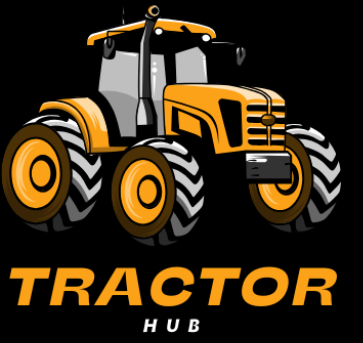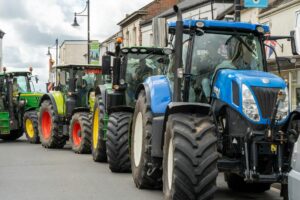If you own or operate a tractor, you’re probably asking: “What kind of insurance is needed for a tractor?” This is one of the most searched questions in the farming and agricultural equipment niche—and for good reason.
Tractors are essential machines in modern agriculture and commercial operations, but they come with serious risks: theft, accidents, fire, and liability exposure. Having the right type of tractor insurance is not just smart—it’s often legally required, especially if you’re driving it on public roads or using it for business.
In this guide, we’ll cover everything you need to know about insuring a tractor, including:
- Types of insurance you may need
- Legal requirements in different scenarios
- Cost breakdown
- Coverage options
- Tips to save money on premiums
- And answers to the most frequently asked questions
✅ Why Do You Need Tractor Insurance?
Tractors, especially modern ones with attachments and smart technology, can cost anywhere from $15,000 to $150,000. Damaging or losing one can be a devastating financial blow to farmers or businesses.
Reasons to insure your tractor:
- 🚨 Accidents and liability claims
- 🔥 Fire, theft, or vandalism
- 🌩️ Natural disasters like floods or storms
- 💸 Lawsuits from injury or property damage
- 📉 Business interruption if the tractor is essential to operations
🛡️ What Kind of Insurance Is Needed for a Tractor?
Here are the main types of insurance coverage you may need depending on how and where you use your tractor:
1. Comprehensive Tractor Insurance
Best For: Farmers, businesses, or anyone using the tractor daily.
This offers full coverage including:
- Accidental damage
- Theft or vandalism
- Natural disasters (flood, hail, fire)
- Public road use
- Third-party property or injury liability

✅ Why choose it? It provides peace of mind for nearly every risk your tractor might face.
2. Third-Party Liability Insurance (Mandatory in Many Regions)
Best For: Those who drive tractors on public roads.
Covers:
- Bodily injury to others
- Property damage caused by your tractor
🔒 Legally required in many countries if your tractor leaves private property.
3. Farm Equipment Insurance
Best For: Tractor owners using the equipment solely for agricultural purposes on private land.
Includes:
- Damage from fire, lightning, or overturning
- Theft from secured storage
- Optional coverage for attachments or implements
Tailored for farming operations. It may be part of a larger farm policy that includes barns, livestock, and crops.
4. Commercial Tractor Insurance
Best For: Landscaping companies, construction firms, transport operators
Coverage includes:
- Business liability
- Equipment breakdown
- Coverage while transporting the tractor
- Worker’s compensation add-ons
Often bundled with general business insurance.
5. Trailer and Attachment Insurance
Your tractor’s attachments (plows, backhoes, seeders, etc.) may not be covered by basic policies. Separate coverage can be added to protect:
- Expensive implements
- Tow-behind trailers
- Mounted accessories
⚖️ Legal Requirements for Tractor Insurance
Legal requirements vary based on:
- Country or state
- Usage of the tractor
- Road registration
Here’s a breakdown:
| Use Case | Insurance Requirement |
|---|---|
| Tractor used only on farm | Not always required, but strongly recommended |
| Tractor driven on public roads | Third-party liability is usually mandatory |
| Commercial/business use | Must have liability and possibly worker coverage |
How Much Does Tractor Insurance Cost?
Several factors affect the cost of tractor insurance, such as:
- Tractor value
- Type of coverage
- Deductible amount
- Location (rural vs. urban)
- Frequency and purpose of use
- Security features installed
🔎 How to Choose the Best Tractor Insurance
Here are key steps for choosing the right coverage:
1. Assess Your Tractor’s Value and Usage
- Is it brand new or decades old?
- Used for daily work or seasonal harvesting?
Tailor your insurance accordingly.
2. Check for Bundled Farm Policies
Many insurers offer agriculture packages covering:
- Machinery
- Livestock
- Crops
- Farm structures
3. Evaluate Deductibles and Premiums
A higher deductible can lower your monthly cost—but make sure you can afford to pay it if something goes wrong.
4. Compare Many Providers
Get quotes from at least 3 providers. Look for:
- Custom coverage
- Road use add-ons
- Claim settlement ratio
- 24/7 customer support
🔒 Tips to Reduce Tractor Insurance Premium
✅ Store the tractor in a locked, secure shed ✅ Install GPS tracking or anti-theft devices ✅ Limit tractor use on public roads ✅ Maintain regular servicing and inspections ✅ Bundle your insurance with other assets ✅ Avoid claims for minor repairs; protect your claim history
🌐 Best Tractor Insurance Providers in 2025
Here are a few top-rated insurers for tractor and farm equipment coverage:
- Nationwide Farm Insurance
- State Farm Agribusiness
- Progressive Commercial
- Farm Bureau Insurance
- American Family Insurance
- Zurich Agricultural Solutions
- AXA Farm & Equipment Insurance
🔍 Always review customer feedback and consult an insurance advisor if needed.
🧠 FAQs: What Kind of Insurance is Needed for a Tractor?
❓ 1. Do I need insurance if I only use my tractor on private property?
Not legally, in most cases—but it’s highly recommended. Risks like fire, theft, or overturning can still happen on private land.
❓ 2. Is my tractor covered by home or property insurance?
In most cases, NO. Tractors are often excluded from standard homeowner’s policies. Always get dedicated farm equipment insurance.
❓ 3. Can I insure used or older tractors?
Yes! Many providers offer agreed value or actual cash value policies based on age and condition. Documentation and appraisals may be required.
❓ 4. What if I tow trailers or use attachments?
These are not always covered by default. Ask your insurer to include trailer/implement coverage or consider separate policies.
❓ 5. Does tractor insurance cover natural disasters?
Yes—if you have comprehensive or farm equipment coverage, damage from fire, hail, windstorms, or flooding can be included.
❓ 6. Is tractor insurance tax-deductible?
If your tractor is used for business or farming, insurance premiums may be tax-deductible. Speak with a tax professional for guidance.
📝 Final Thoughts
Understanding what kind of insurance is needed for a tractor is essential if you want to protect your investment, business, and livelihood. With the right policy, you can rest assured that you’re covered from the unexpected.
Whether you’re a small farmer or manage a fleet of commercial tractors, take time to assess your needs, shop for quotes, and ensure you meet legal requirements.
🔗 Related Articles
- 10 Best Tractors for Small Farms in 2025
- Tractor Maintenance Checklist Every Owner Should Know
- How to Choose the Best Farm Equipment Insurance
- What is the Right Time to Buy a Tractor?




Pingback: Best Farm Tractor Insurance (Updated) 2026